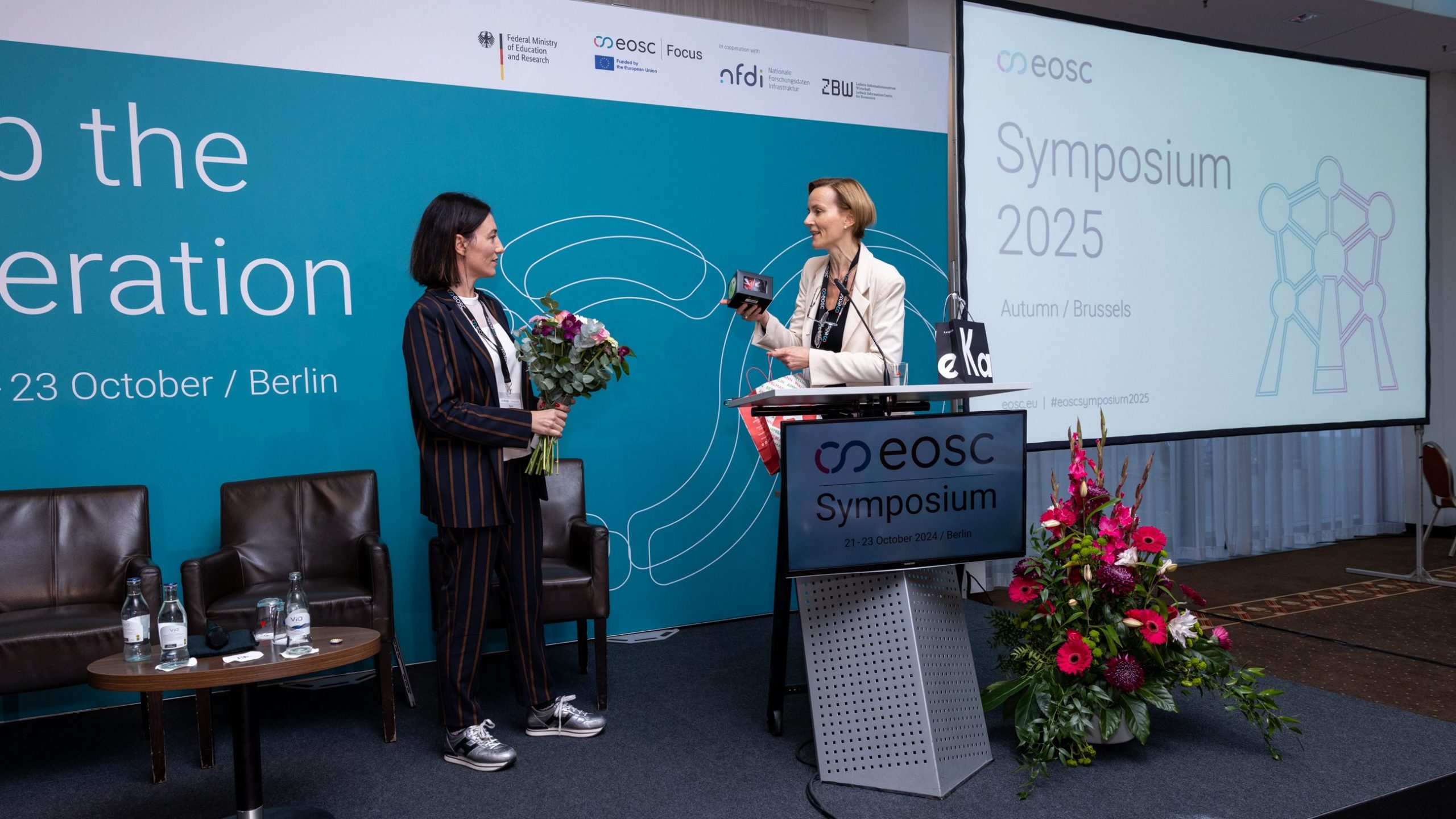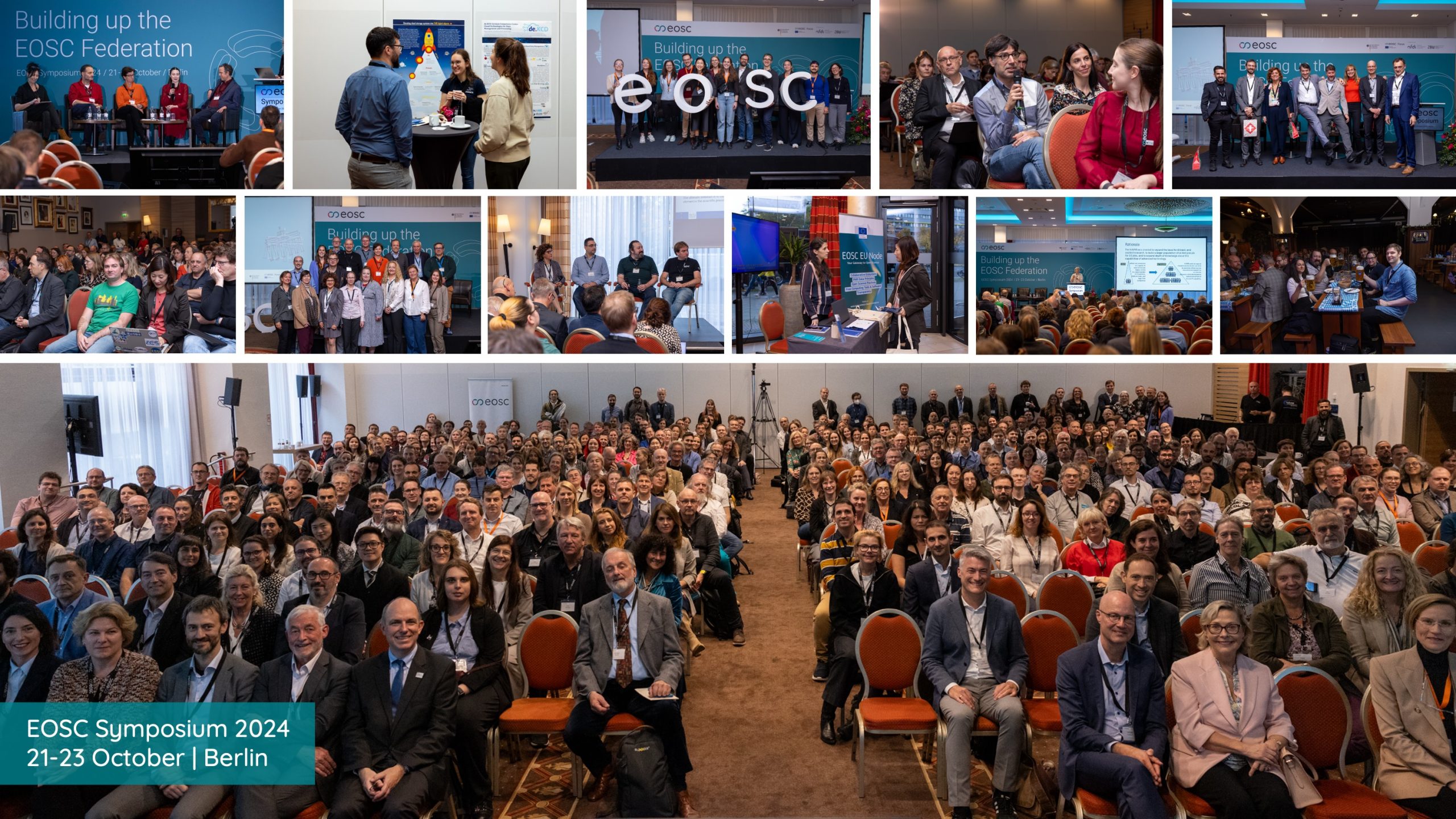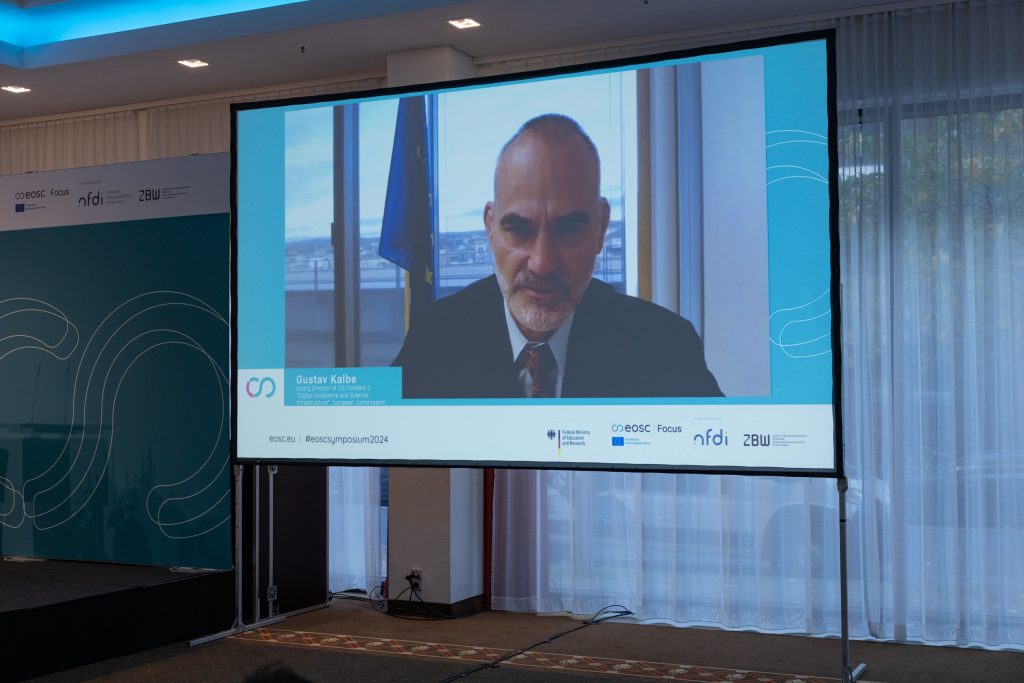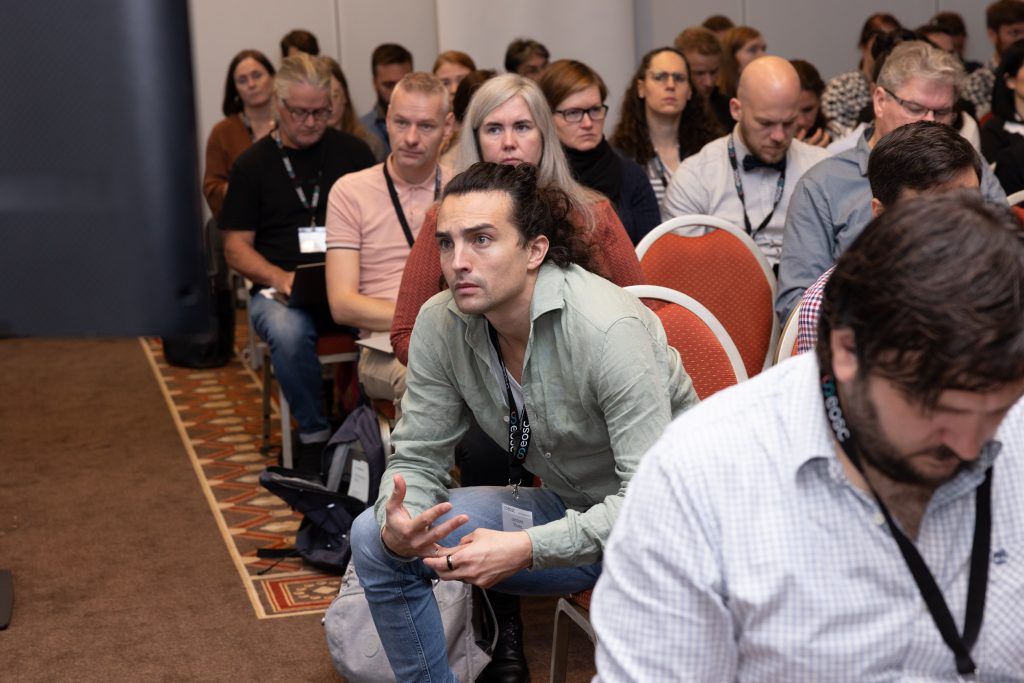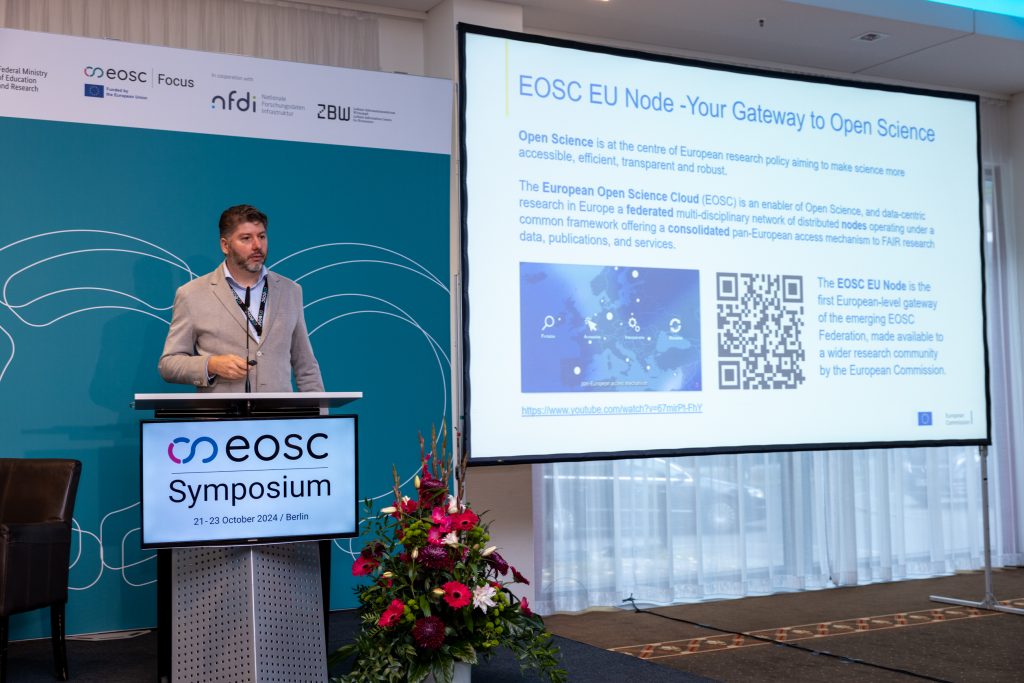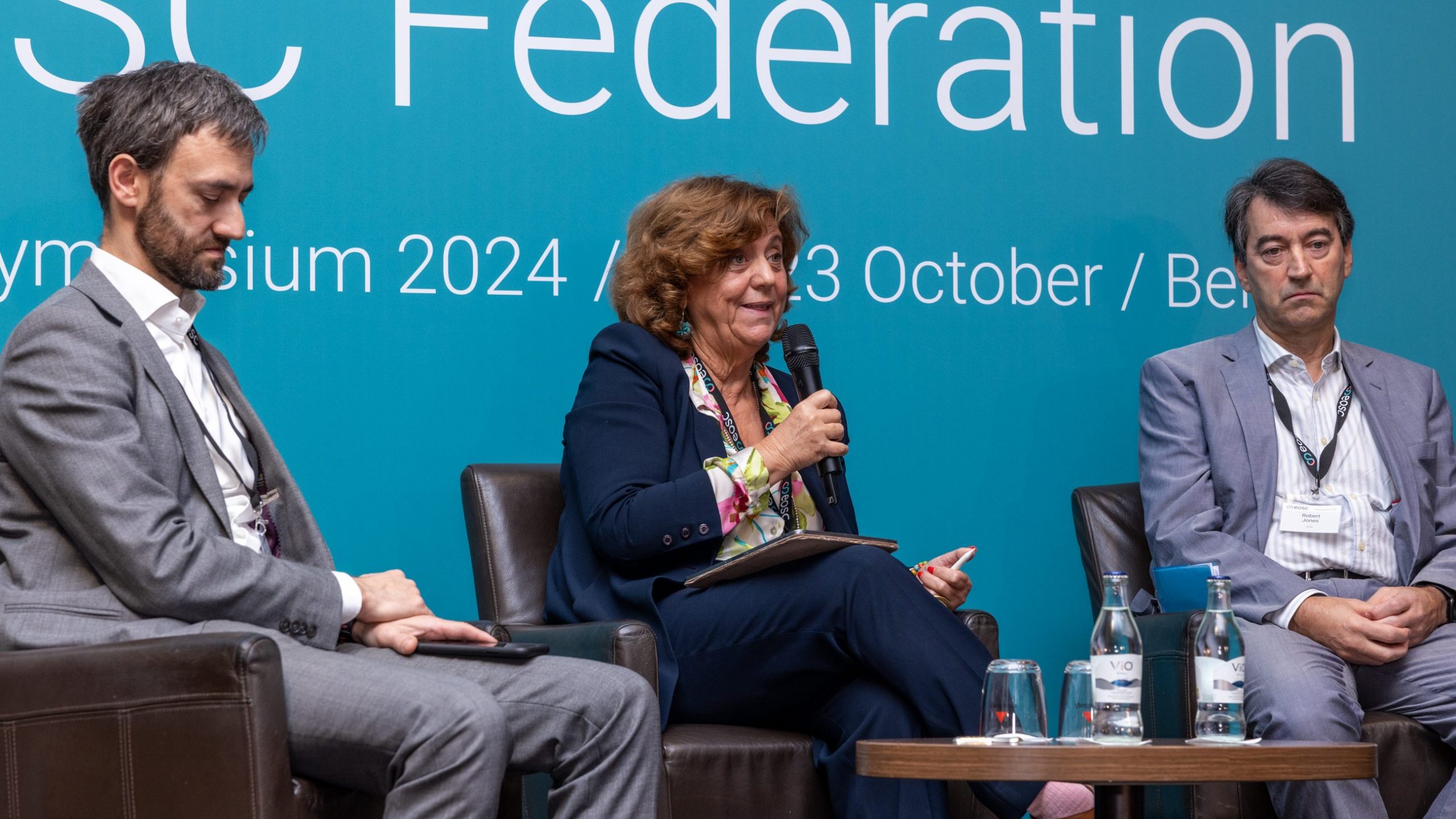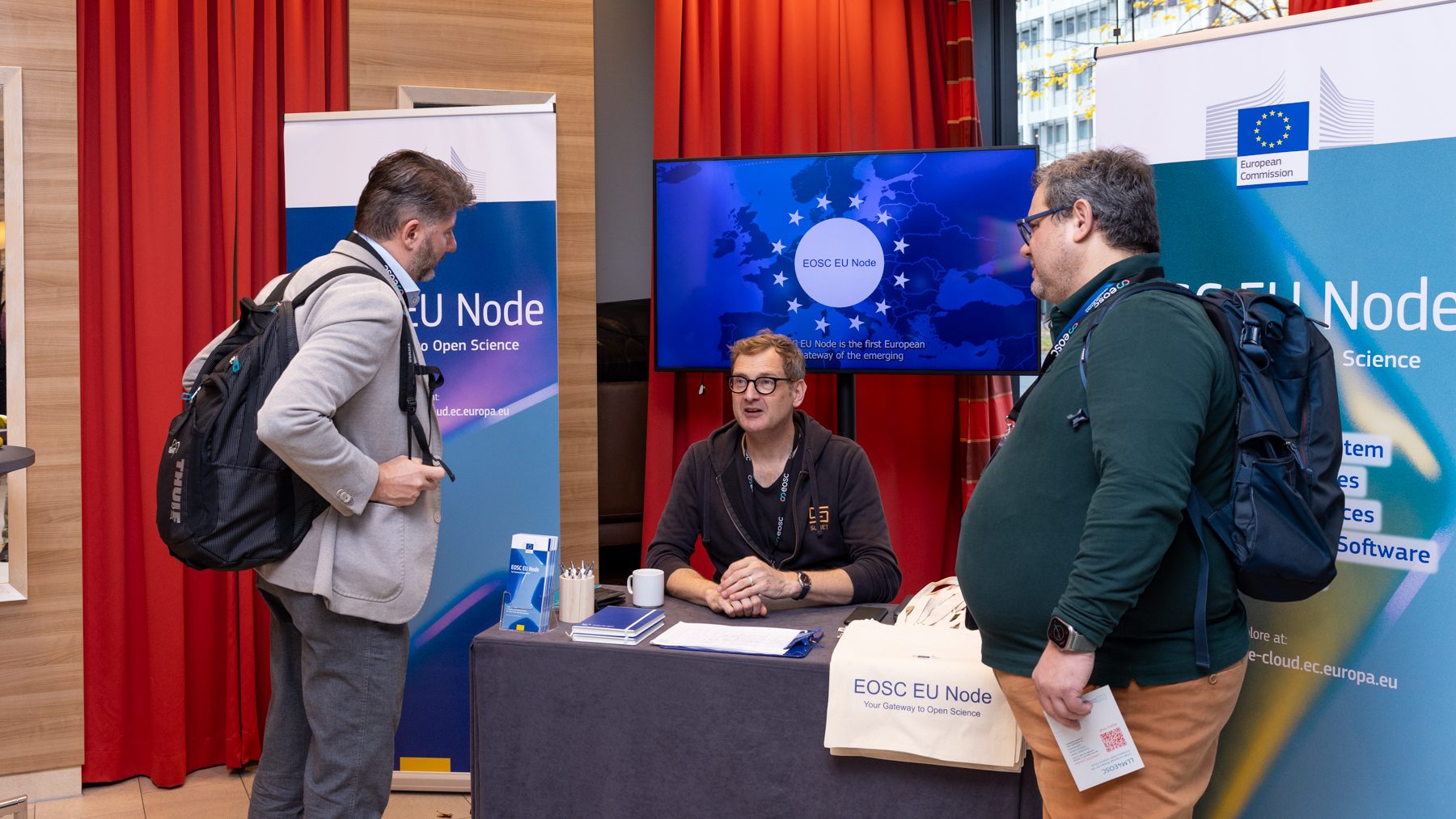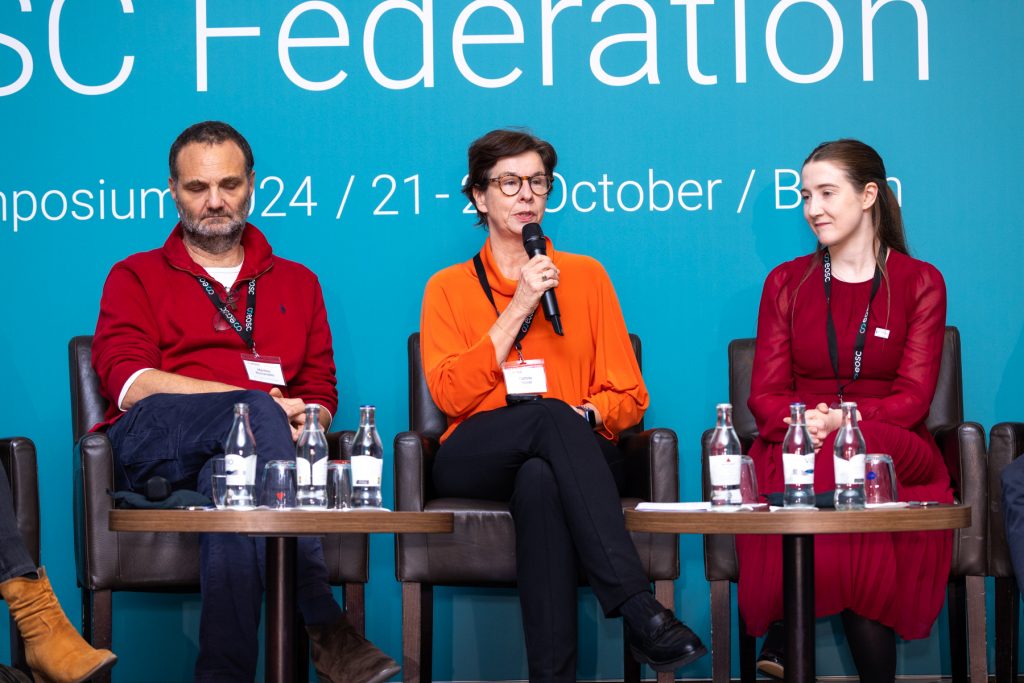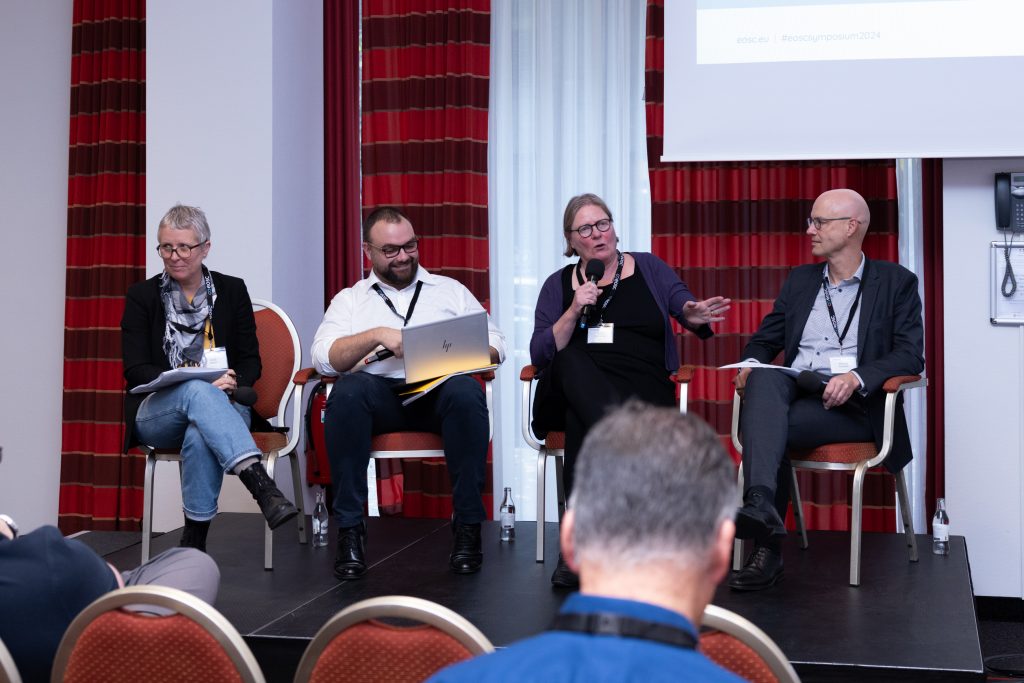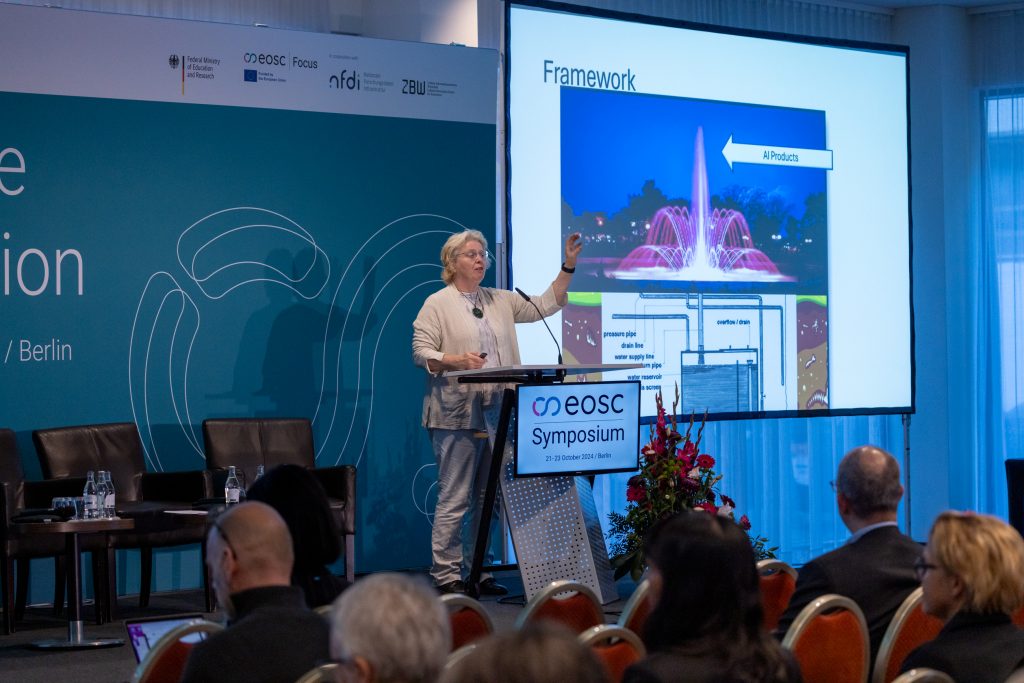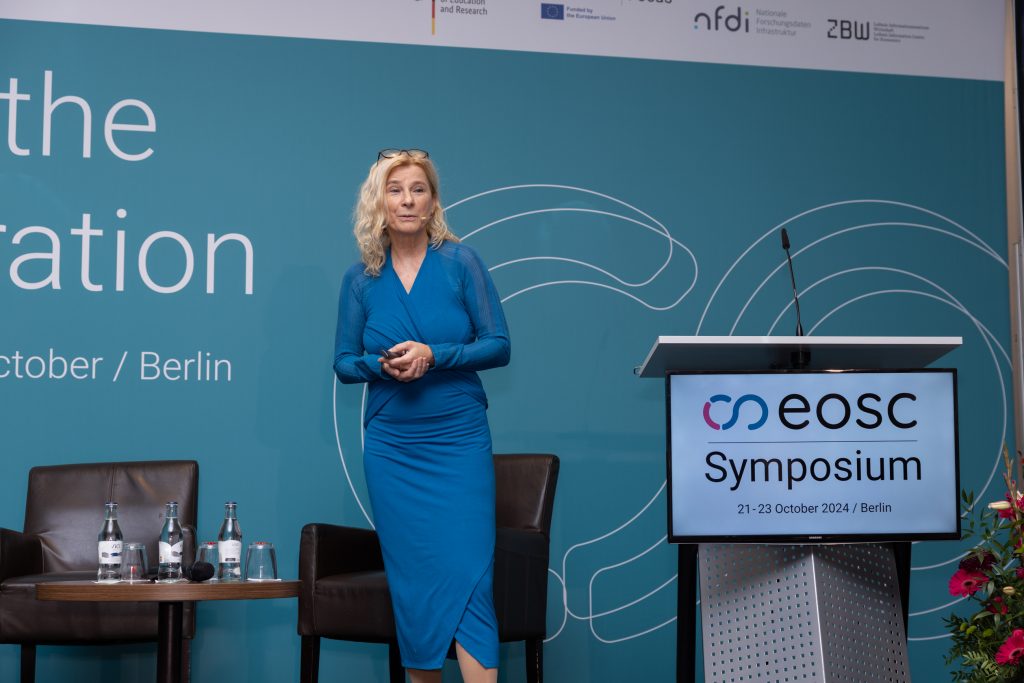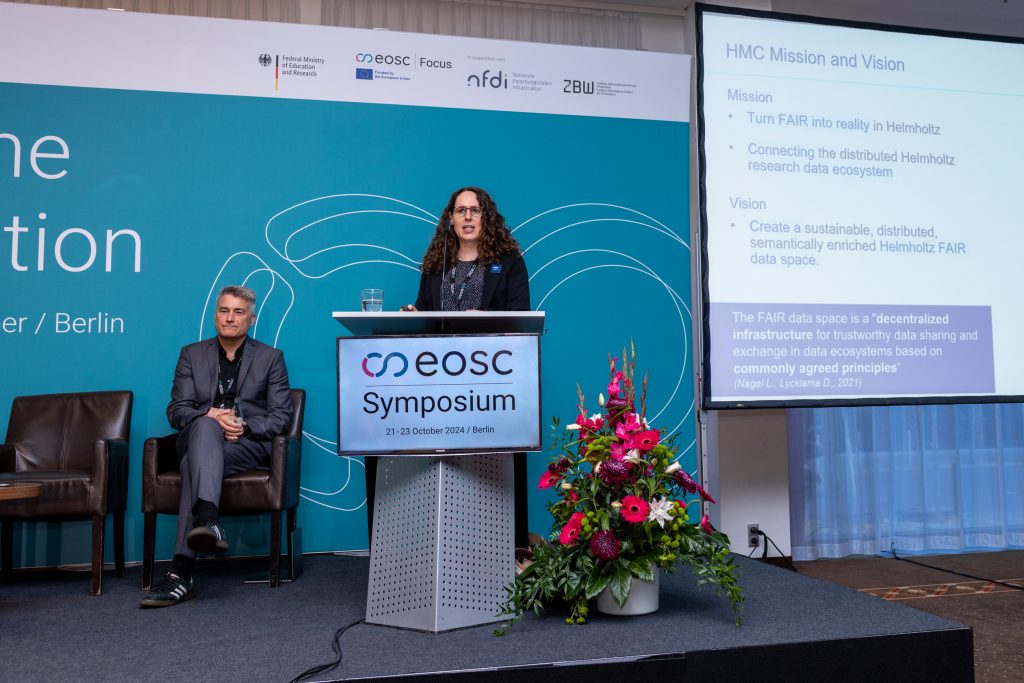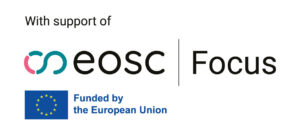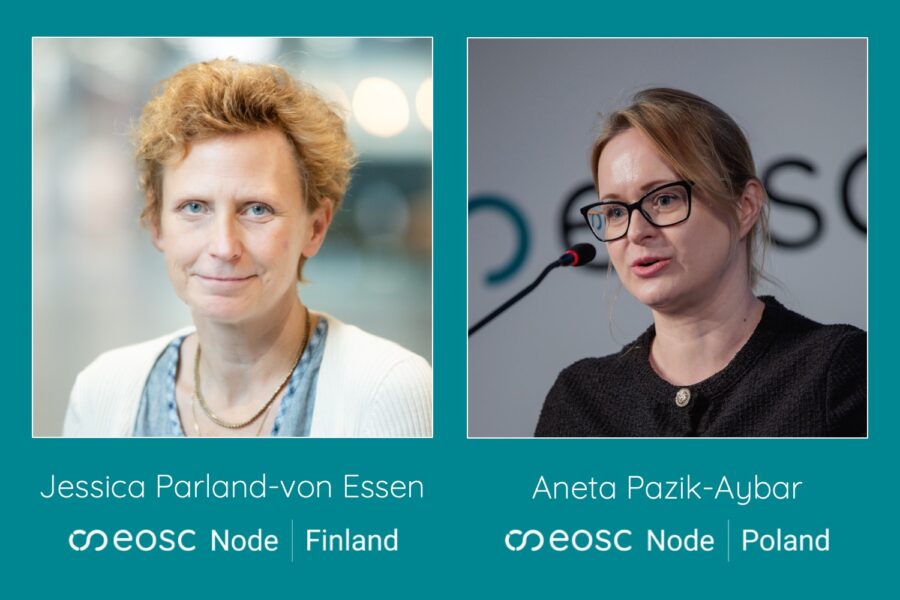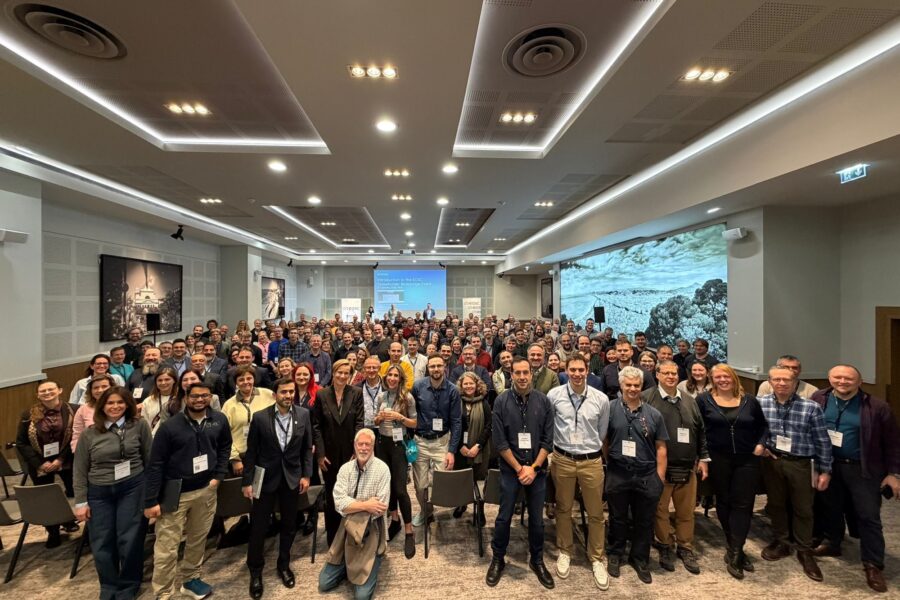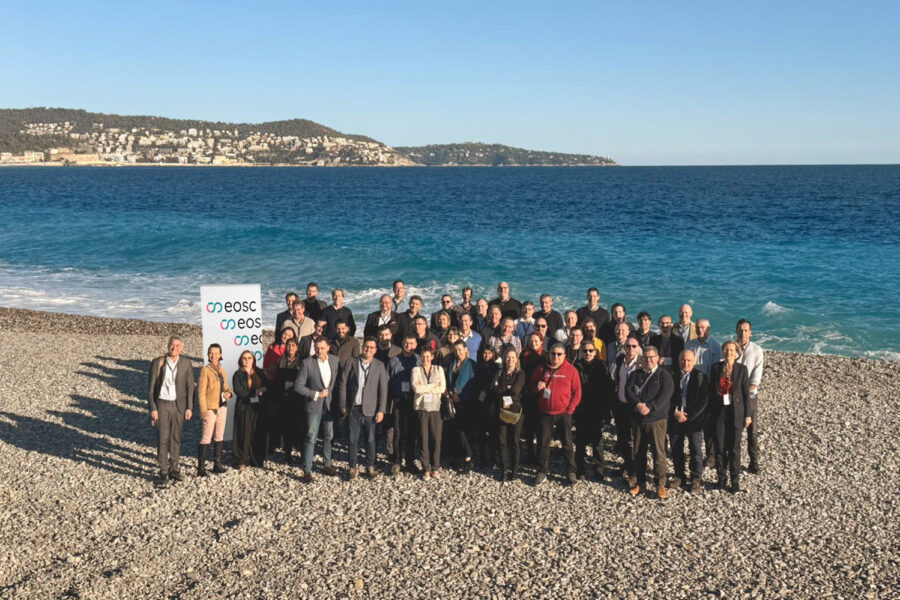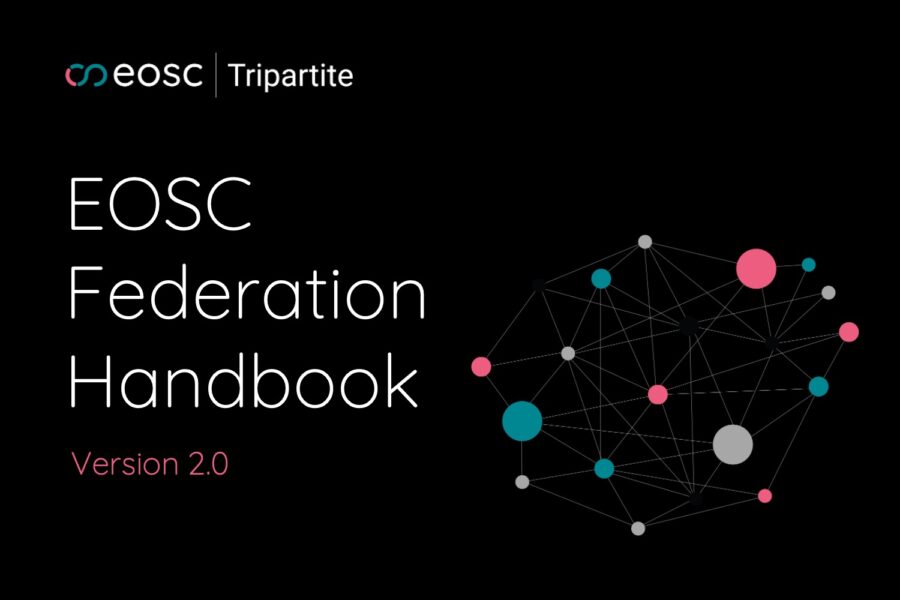BERLIN—The EOSC Symposium 2024 kept its promise to be a pivotal event for the advancement of the European Open Science Cloud (EOSC).
More than 450 participants gathered in Berlin under the patronage of the German Minister for Education and Research Bettina Stark-Watzinger, with another thousand registered for online participation, altogether representing 64 nations. The annual meeting, which featured the launch of the first node of the EOSC Federation among its impressive lineup of 26 sessions and more than 130 speakers, marked an important milestone for the future of EOSC.
- Political and community backing reaffirmed
- EOSC EU Node released to public
- Process outlined for building up the EOSC Federation
All photos by Andrew Grauman
Minister Stark-Watzinger opened the meeting via video address with a simple mandate for her own German national research data infrastructure, NFDI, while urging other European national digital infrastructures to join with them to “go EOSC!” Also via video address, European Commissioner Iliana Ivanova threw the full weight of the Commission behind EOSC, reaffirming its commitment in strong terms. In this she was echoed by Deputy Director-General for the Commission’s Research and Innovation Directorate, Signe Ratso, who positioned EOSC as a central pillar in the European Research Area; and by former Italian Prime Minister Enrico Letta who declared EOSC to be of “the greatest importance” to the so-called 5th freedom coined by his report on the future of the European single market – a European knowledge commons dedicated to research, innovation and education.
Read the EOSC Tripartite Governance’s reflection paper on the Letta, Draghi and Heitor reports:
The EOSC Federation starts taking shape
The build-up of the EOSC Federation was the outstanding theme of the 2024 edition of the EOSC Symposium, and anticipation was high across the EOSC community for the official launch of the first node of the EOSC Federation, the EOSC EU Node.
The European Commission, represented by Gustav Kalbe, Acting Director of DG CNECT’s Enabling and Emerging Technologies Unit, and Michael Arentoft, Head of DG-RTD’s Open Science and Research Infrastructures Unit, both emphasised how the EOSC EU Node is essential to the establishment of the EOSC Federation in its role as a blueprint for other EOSC Nodes while supporting them with federating capabilities. Acting Director Kalbe called attention to this “historic moment” as the “start of a new era”, and positioned EOSC within the bigger picture of the global digital infrastructure that will enable frontier science, taking its place alongside the other outsize undertakings of High-Performance Computing and AI.
The European Commission also invited researchers to start taking advantage of the services provided by the EOSC EU Node, namely a File Sync and Share service, Interactive Notebooks, a Large File Transfer service, Virtual Machines, a Cloud Container Platform, and a Bulk Data Transfer service. Researchers can access these resources by signing up to the EOSC EU Node using their institutional credentials or EU Login. Live demonstrations, use cases and answers to the many questions from the audience were provided during the Symposium’s dedicated “Deep dive into the EOSC EU Node” session. More information on the launch of the EOSC EU Node is available here.
In the context of the historic launch of the EOSC EU Node, the Symposium provided the opportunity for the entire community to discuss the plans, approaches and challenges for the creation of the other EOSC Nodes taking shape in Europe. The EOSC Association presented the two main activities that are taking place in that respect:
- The process designed by the EOSC Tripartite Governance to select the first batch of candidate EOSC Nodes to be piloted in 2025, and the overall “wave approach” organised to ensure that all actors interested in operating a Node will be systematically enrolled in the EOSC Federation according to its evolving capacity.
- The collective writing of the EOSC Federation Handbook – “the bible” of the EOSC Federation where Node Operators will be able to find policies, guidelines and technical information on how to join the Federation – and the ongoing community consultation which will remain open through 17 November 2024. The plan for the next years is to continuously enrich and revise the Handbook by including the lessons learnt through the systematic enrolment and operation of EOSC Nodes.
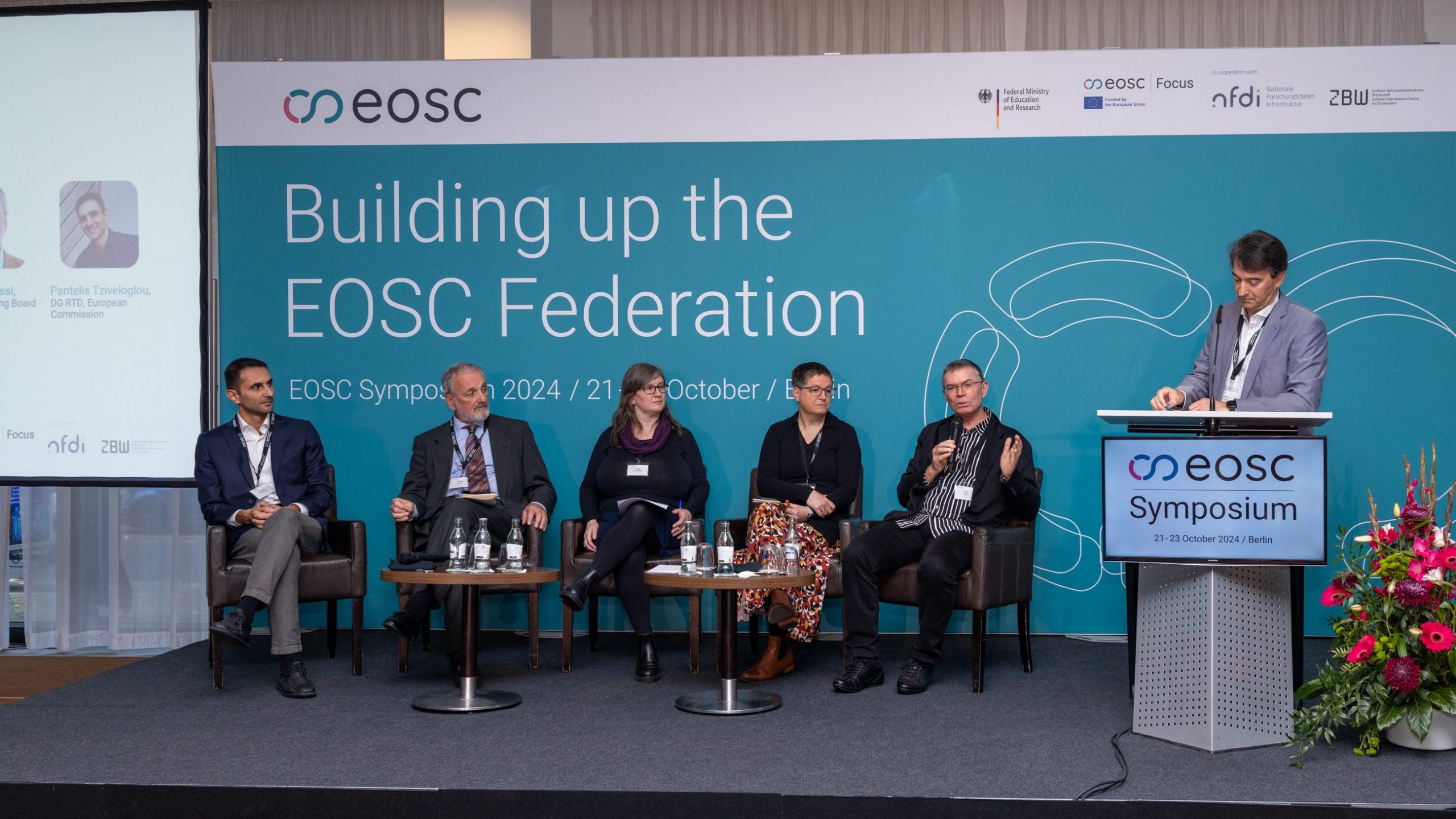
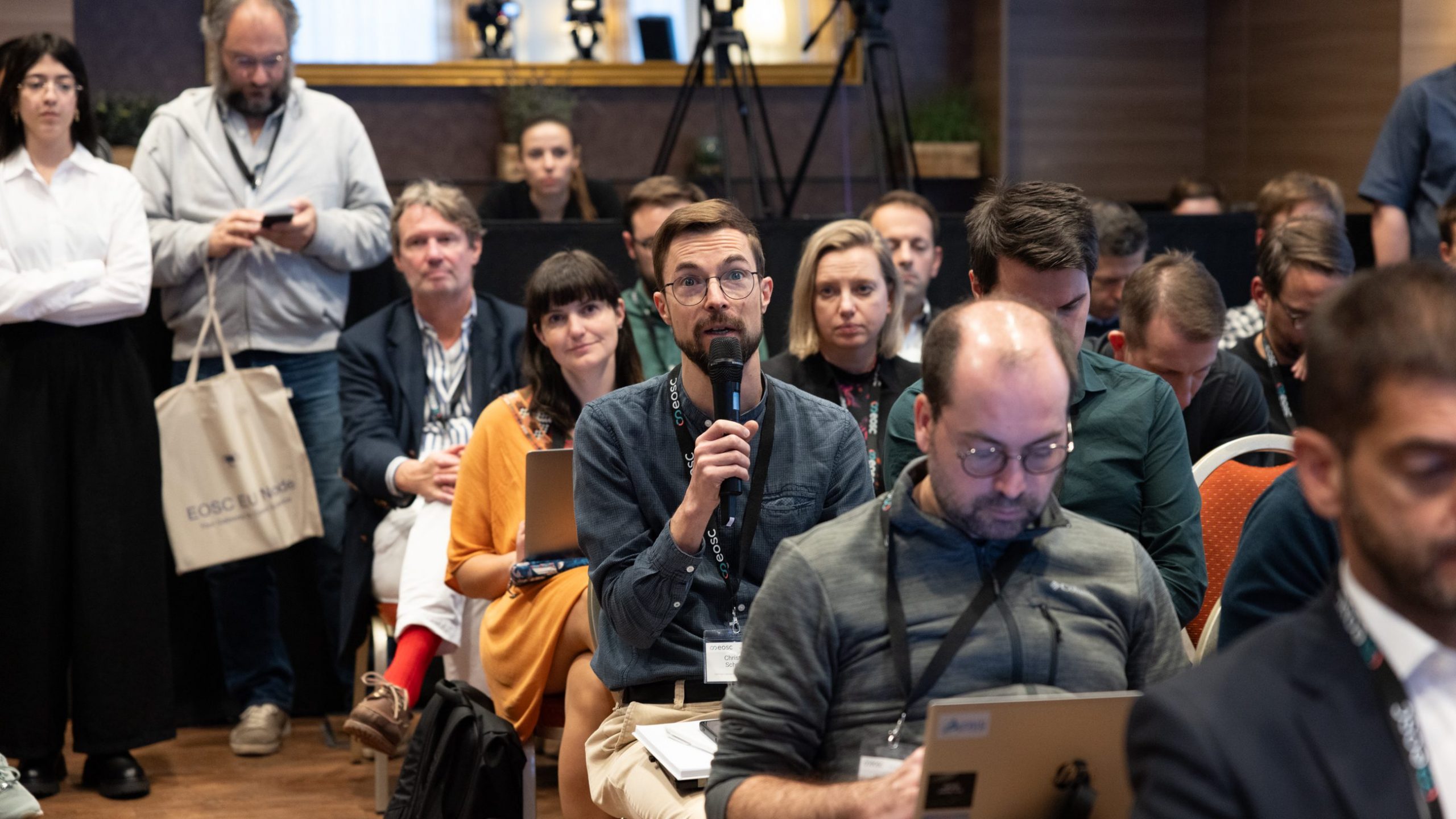
Europe goes EOSC: More than 120 organisations interested in contributing to the EOSC Federation
During the summer, the EOSC Tripartite collected expressions of interest to contribute to the EOSC Federation: more than 120 organisations responded. During the Symposium a series of sessions discussed how countries, Research Infrastructures, thematic communities, e-Infrastructures, universities, libraries and individual institutions are getting ready for the EOSC Federation. The panel discussions highlighted open questions, including: What is the commitment from the countries and the European Commission? What are the challenges and the concrete problems that the EOSC Federation can solve? Which interoperability framework should be put in place?, among many others.
The sessions also addressed proposals on how to develop the EOSC Federation to ensure that it complements and adds value to the existing national, European and thematic ecosystems. Several countries, for example, are organising multi-stakeholder groups to coordinate Nodes at the national level, and the thematic communities are collaborating to discuss what could be the best setup for discipline-specific EOSC Nodes.
The EOSC Symposium was the opportunity for the community to start a collective discussion on the EOSC Federation that will continue in the next months under the steering and organisation of the EOSC Tripartite.
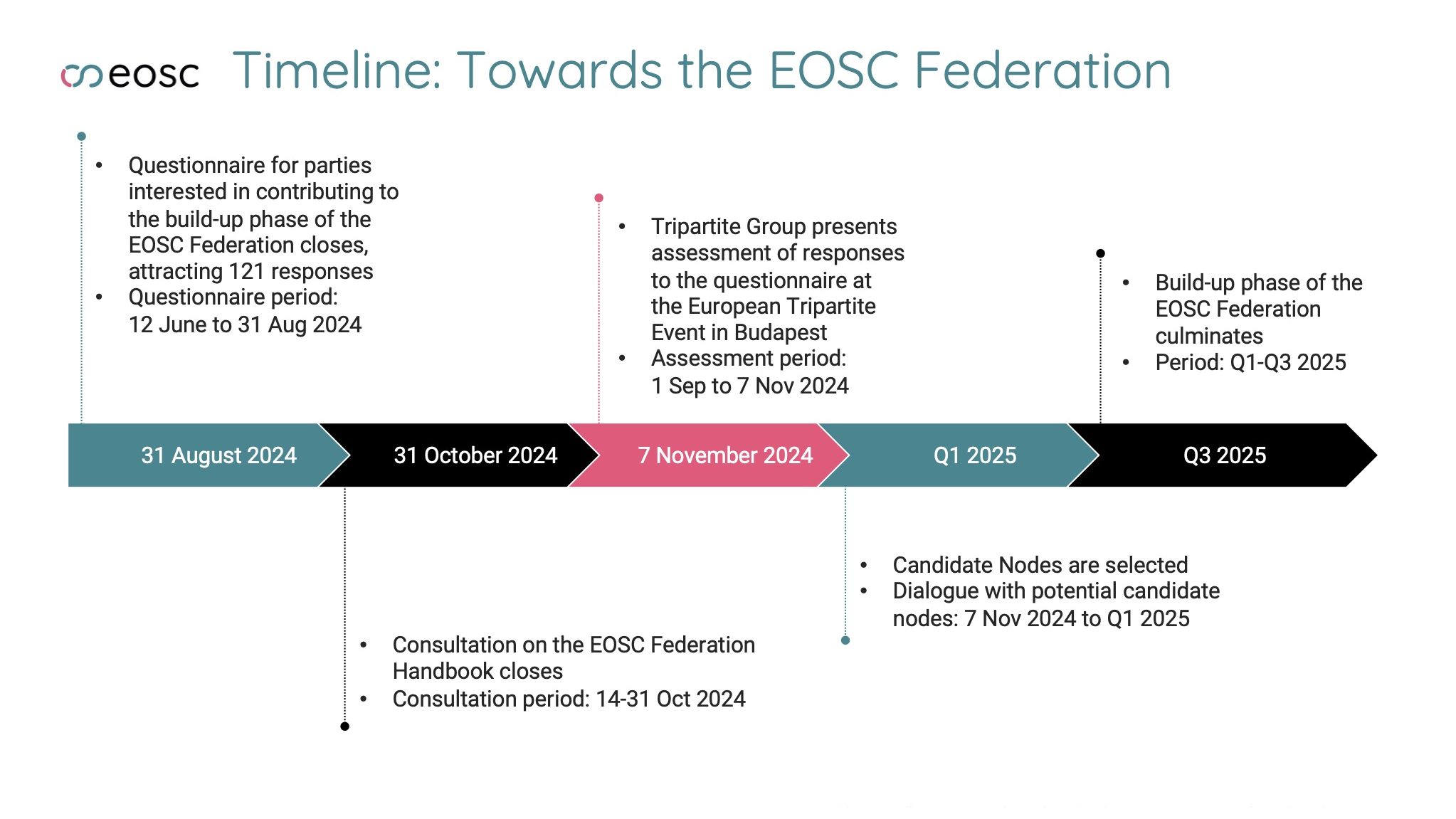
The EOSC Federation in the broader context
EOSC is not alone in the landscape, and many connections are naturally established with other very topical initiatives such as the Common European Data Spaces (a session dedicated to the connections between EOSC and the European Health Data Space was held in Berlin), Digital Twins and Artificial Intelligence developments. Going beyond the topic of the Federation’s build-up phase, the EOSC Symposium was enriched by several community sessions to advance topics such as management of sensitive data, sustainable research software development within and across disciplines, scholarly data interoperability, Open Science Competence Centres, legal issues along the research data cycle, training and education for research data management and data science, data retention, FAIR metrics and data quality, interoperability, findability, FAIR data for AI and AI for FAIR data.
Most of the presentations, recordings and Slido questions from the sessions and panel discussions are available at the eosc.eu Symposium 2024 outcomes and resources page.
Two thrilling keynote speakers
The sessions of the EOSC Symposium were complemented by two inspiring keynote speakers: Julia Lane, from New York University, an economist and leading figure in the field of Artificial Intelligence; and Claudia Draxl, Einstein Professor at Berlin’s Humboldt University and renowned expert in materials science.
Julia Lane was a senior advisor in the Office of the Federal CIO at the White House, supporting the implementation of the US Federal Data Strategy. She recently served on the Advisory Committee on Data for Evidence Building and the National AI Research Resources Task Force, and currently serves on the US Secretary of Labor’s Workforce Innovation Advisory Committee. She is a senior advisor at the National Institute of Standards and Technology (NIST) working on the President’s Executive Order on Artificial Intelligence. In her talk, Julia emphasised the importance of investing in the unseen “plumbing” that makes infrastructures work. Funders and stakeholders tend to focus on the “sparkling fountain” representing infrastructure outcomes, but it is the plumbing that ensures safe, secure, and trustworthy data. Julia highlighted that AI’s precision relies on access to massive, high-quality data, making data investments vital. Impactful outcomes can be achieved by incentivising data sharing and curation.
Claudia Draxl is a physicist who conducts research in theoretical concepts and methodology to gain insight into a variety of materials and their properties. She is also the spokesperson of the NFDI consortium, FAIRmat, which is developing NOMAD, an open-access library and research data management service for collecting, organising, sharing, analysing, and publishing FAIR materials science data. Her scientific keynote focused on assessing the ecological and sustainable practices in research, emphasising the importance of responsible data management. It highlighted the need to consider recycling not only of materials, but also of data and knowledge generated in research processes, and she stressed the need for clear and comprehensive metadata to make data useful and accessible.
NFDI on the road to become the EOSC German national node
Following German research minister Stark-Watzinger’s notable opening of the Symposium, which issued NFDI, the German National Research Data Infrastructure, the mandate to “go EOSC”, several representatives of NFDI went on to contribute to different Symposium sessions to highlight the contributions that NFDI can make to the EOSC Federation. In particular, the final plenary session, “EOSC impact and opportunities on the infrastructure landscape”, co-organised by the EOSC Tripartite and NFDI, saw the presentation of different German national infrastructures followed by a panel reflecting on the impact of EOSC on the German national ecosystem. Germany already has many pieces in place – thematic consortia, national e-Infrastructures, federating capabilities provided by the Base4NFDI consortia, etc. – and it is time to put the puzzle pieces together, noted NFDI Director York Sure-Vetter. “Alignment” was the keyword for the co-located EOSCxNFDI event, which immediately followed the EOSC Symposium on Wednesday evening and Thursday.
Thank you and Auf Wiedersehen in Brussels in 2025
On the last day of the event, Ute Gunsenheimer, Secretary General of the EOSC Association, chaired the closing session of the event and revealed the next stop for the EOSC Symposium: the 2025 edition will be hosted next fall by Belgium, in Brussels. At the closing plenary participants were asked to describe the Symposium in one word, resulting in a word cloud dominated by three words: “intense”, “networking” and “inspiring”. We couldn’t agree more.The EOSC Association extends its thanks to all the participants and fellow organisers, including from the ZBW – Leibniz Information Centre for Economics, NFDI and the EOSC Focus project, for having made the EOSC Symposium 2024 a success!
